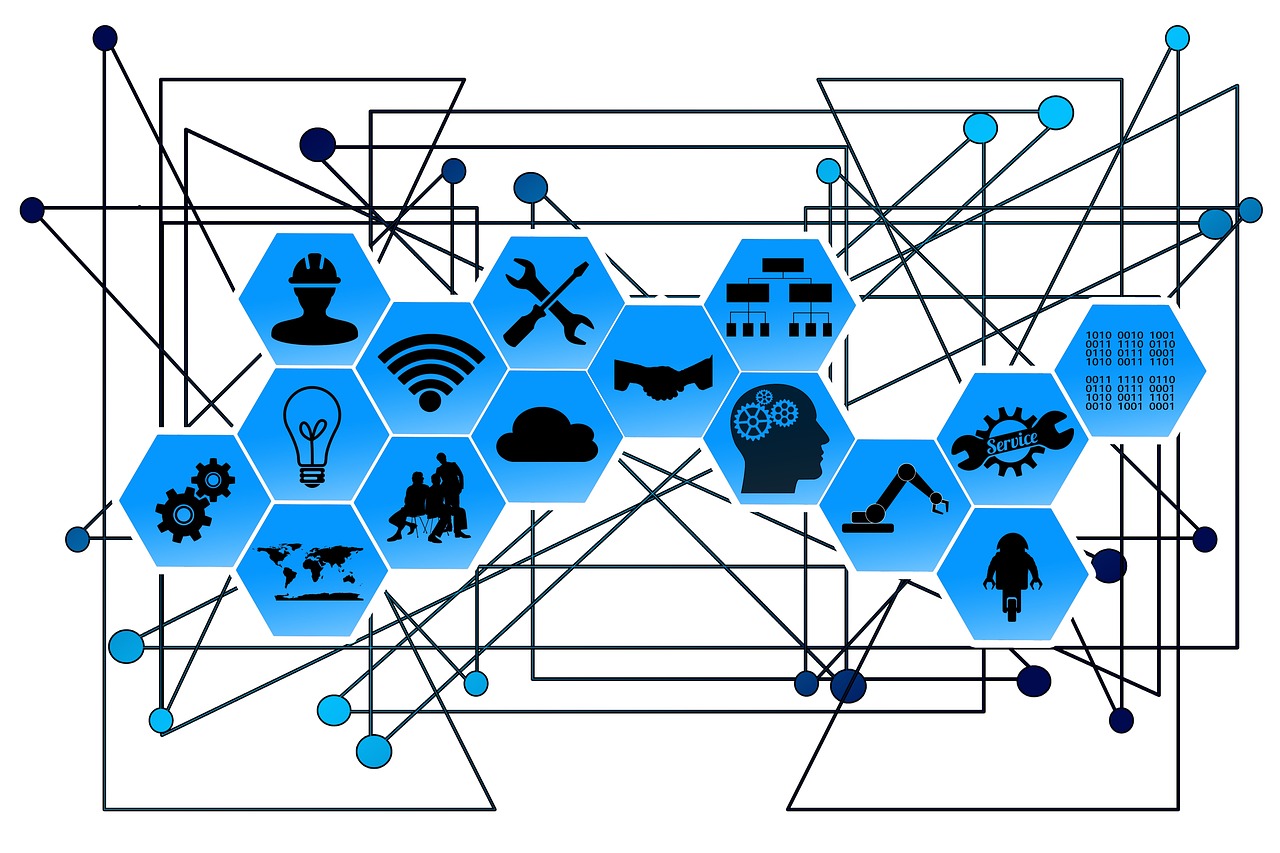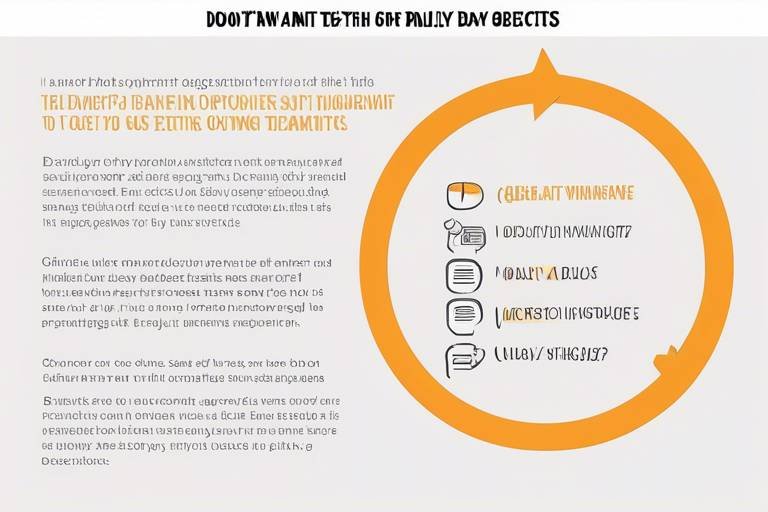The Role of AI in Task Management
Artificial Intelligence (AI) is revolutionizing task management across various industries, bringing about a significant shift in how organizations handle their workflows. By leveraging advanced technologies and smart algorithms, AI is enhancing productivity and efficiency to unprecedented levels.
One of the key advantages of AI in task management is its ability to automate repetitive tasks that consume valuable time and resources. Tasks such as data entry and scheduling are streamlined by AI, allowing human employees to focus on more strategic activities that require creativity and critical thinking. This not only boosts efficiency but also reduces the likelihood of errors in task execution.
Moreover, AI algorithms play a crucial role in enhancing task prioritization. By analyzing vast amounts of data, AI can prioritize tasks based on factors like urgency, importance, and dependencies. This ensures that resources are allocated effectively, deadlines are consistently met, and overall productivity is maximized.
AI systems also offer personalized task recommendations tailored to individual work patterns, preferences, and capabilities. By understanding how each user operates, AI helps in organizing tasks in a way that aligns with their objectives, keeping them focused and on track.
Real-time monitoring and alerts are another critical aspect where AI excels in task management. By providing continuous monitoring of task progress, AI can alert users to delays or bottlenecks in real-time. This enables proactive intervention and adjustments to maintain project timelines and uphold quality standards.
Furthermore, AI optimizes resource allocation by analyzing factors such as workloads, skill sets, and availability. Tasks are assigned to the most suitable team members, ensuring that efficiency and output quality are maximized. This leads to better utilization of resources and improved overall performance.
AI also fosters improved collaboration and communication within teams. By offering centralized platforms for task management, AI facilitates seamless communication, file sharing, and feedback exchange among team members, regardless of their physical locations. This promotes teamwork and enhances overall efficiency.
Another significant benefit of AI in task management is its predictive analytics capabilities. By leveraging historical data and patterns, AI can forecast future task requirements, resource needs, and potential obstacles. This empowers organizations to plan effectively, anticipate challenges, and mitigate risks proactively.
Lastly, AI systems continuously learn and adapt from user interactions and feedback. This enables them to evolve with changing work environments and requirements, delivering more intelligent and personalized solutions for efficient task management.

Automation of Repetitive Tasks
Exploring how artificial intelligence is transforming task management processes in various industries and enhancing productivity and efficiency through automation and smart algorithms.
AI plays a crucial role in automating repetitive tasks that consume valuable time and resources. By leveraging advanced algorithms, AI streamlines processes such as data entry and scheduling, allowing human employees to focus on more strategic activities. This automation not only boosts efficiency but also minimizes the chances of errors, ensuring tasks are completed accurately and promptly.

Enhanced Task Prioritization
Exploring how artificial intelligence is transforming task management processes in various industries and enhancing productivity and efficiency through automation and smart algorithms.
When it comes to managing tasks effectively, prioritization plays a crucial role in ensuring that the most important activities are tackled first. With the integration of artificial intelligence (AI) in task management, prioritization has reached a whole new level of efficiency and accuracy.
AI algorithms have the capability to analyze vast amounts of data in a fraction of the time it would take a human. By considering factors such as urgency, importance, and dependencies, AI can determine the optimal order in which tasks should be addressed. This not only saves valuable time but also ensures that resources are allocated in a manner that maximizes productivity.
Imagine having a personal assistant that knows exactly what needs to be done next based on the context of your work environment. AI-powered task prioritization systems can provide just that. By understanding the unique requirements of each task and the overall project goals, AI can recommend the most efficient sequence of actions to achieve desired outcomes.
Furthermore, AI can adapt to changing circumstances on the fly. If a new task emerges that requires immediate attention, the system can quickly adjust the priority levels of existing tasks to accommodate the new addition without disrupting the overall workflow. This dynamic approach to task prioritization ensures that resources are always directed towards the most pressing needs.
Overall, enhanced task prioritization through AI not only streamlines the decision-making process but also minimizes the risk of overlooking critical tasks. By leveraging the power of AI algorithms, organizations can optimize their task management strategies and stay ahead of the curve in today's fast-paced business landscape.
Q: How does AI determine the priority of tasks?
A: AI evaluates various factors such as deadlines, dependencies, and importance levels to assign priority to tasks effectively.
Q: Can AI adjust task priorities in real-time?
A: Yes, AI systems can dynamically modify task priorities based on changing circumstances and new task requirements.
Q: Is AI task prioritization customizable?
A: AI task prioritization systems can be tailored to align with specific organizational goals and individual preferences for optimal efficiency.

Personalized Task Recommendations
When it comes to managing tasks efficiently, one size does not fit all. AI systems have revolutionized task management by offering personalized recommendations tailored to individual work styles and preferences. Imagine having a virtual assistant that understands how you work, what tasks you excel at, and what challenges you face. This level of personalization goes beyond generic task lists and takes into account your unique capabilities and constraints.
Through sophisticated algorithms, AI can analyze your past work patterns, task completion times, and even your peak productivity hours. By leveraging this data, AI can suggest tasks at optimal times, ensuring that you work on what matters most when you are most productive. It's like having a mentor who knows you inside out, guiding you towards your goals effectively.
Moreover, personalized task recommendations can help you stay focused on your key objectives. By understanding your strengths and weaknesses, AI can suggest tasks that align with your skill set and interests, fostering a sense of accomplishment and motivation. This tailored approach not only boosts productivity but also enhances job satisfaction and overall well-being.
Imagine receiving task suggestions that resonate with your professional aspirations and play to your strengths. AI can make this a reality by providing recommendations that align with your long-term career goals and development plans. It's like having a career coach who curates your task list to help you grow and succeed in your chosen field.
In essence, personalized task recommendations powered by AI are like having a personal assistant who knows you better than you know yourself. By leveraging data insights and intelligent algorithms, AI can transform the way you manage tasks, making the process more efficient, engaging, and rewarding.

Real-Time Monitoring and Alerts
Real-time monitoring and alerts are crucial components of efficient task management, especially in dynamic work environments where changes can occur rapidly. With the power of AI, organizations can now track task progress and receive instant notifications about any delays or bottlenecks that may arise during project execution. This proactive approach enables teams to address issues promptly, make necessary adjustments, and ensure that project timelines are met without compromising quality.

Optimization of Resource Allocation
When it comes to task management, one of the key areas where artificial intelligence (AI) shines is in the optimization of resource allocation. AI has the capability to revolutionize how organizations assign tasks to their workforce, ensuring that the right people are working on the right tasks at the right time.
Through sophisticated algorithms and data analysis, AI can determine the most suitable team members for specific tasks based on factors such as skill sets, experience, and availability. By optimizing resource allocation in this manner, AI helps organizations maximize efficiency and output quality, ultimately leading to improved productivity and performance.
Imagine a scenario where a project manager needs to assign a critical task that requires specific expertise. Instead of relying on manual assessments or guesswork, AI can quickly analyze the skill sets of team members, past performance data, and current workloads to identify the best-suited individual for the job. This not only saves time but also ensures that tasks are completed by the most qualified personnel.
Furthermore, AI can dynamically adjust resource allocation in real-time as project requirements change or unexpected issues arise. By continuously monitoring workloads and team capacities, AI can redistribute tasks to prevent bottlenecks, optimize workflow efficiency, and maintain project timelines.
By leveraging AI for resource allocation optimization, organizations can operate with greater agility and responsiveness, adapting to shifting priorities and demands with ease. This proactive approach to task assignment not only increases operational efficiency but also enhances overall project outcomes.

Improved Collaboration and Communication
Improved collaboration and communication are essential elements in successful task management within any organization. With the integration of AI, these aspects are further enhanced, creating a seamless workflow for teams regardless of their physical locations. AI platforms provide centralized hubs where team members can collaborate in real-time, share files, exchange feedback, and communicate efficiently.
Imagine a virtual workspace where colleagues from different parts of the world can work together as if they were in the same room. AI-powered task management systems make this a reality by breaking down communication barriers and fostering a sense of unity among team members. By offering features such as instant messaging, video conferencing, and document sharing, AI promotes a collaborative environment that boosts productivity and creativity.
Moreover, AI algorithms can analyze communication patterns within a team, identifying bottlenecks or misunderstandings that may hinder progress. By providing insights on how to improve communication flow and resolve conflicts effectively, AI contributes to a harmonious work environment where ideas can flow freely and projects can be executed smoothly.
Through AI-driven communication tools, team members can receive notifications and updates on task progress, deadlines, and any changes in project requirements. This real-time information exchange ensures that everyone is on the same page, reducing the chances of miscommunication or missed deadlines. Additionally, AI can suggest the best communication channels based on the nature of the task, the team members involved, and the urgency of the matter at hand.
Overall, AI not only streamlines collaboration and communication processes but also fosters a culture of transparency, accountability, and teamwork within organizations. By leveraging AI technologies, businesses can create a dynamic and efficient work environment where ideas are shared, feedback is valued, and projects are executed with precision and excellence.

Predictive Analytics for Task Forecasting
Exploring how artificial intelligence is transforming task management processes in various industries and enhancing productivity and efficiency through automation and smart algorithms.
When it comes to task forecasting, predictive analytics powered by AI plays a crucial role in helping organizations anticipate future needs and challenges. By analyzing historical data and identifying patterns, AI systems can forecast upcoming task requirements, resource demands, and potential obstacles with remarkable accuracy. This proactive approach empowers businesses to plan effectively, allocate resources efficiently, and mitigate risks before they escalate. It's like having a crystal ball that provides insights into the future of task management, enabling companies to stay ahead of the curve and adapt to changing circumstances seamlessly.

Continuous Learning and Adaptation
Continuous learning and adaptation are at the core of artificial intelligence's impact on task management. Imagine AI systems as diligent students, constantly absorbing new information and adjusting their strategies to excel in their assignments. These intelligent algorithms don't just follow a set pattern; they evolve and improve based on the feedback they receive, much like a skilled artisan refining their craft over time.
Through continuous learning, AI systems can fine-tune their task management capabilities, becoming more adept at recognizing patterns, predicting outcomes, and making informed decisions. It's like having a virtual assistant that not only performs tasks efficiently but also gets better at understanding your needs and preferences with each interaction.
Adaptation is another key aspect of AI in task management. Just as a chameleon changes its colors to blend into its surroundings, AI systems adapt to the dynamic nature of work environments. They can swiftly adjust their approaches, workflows, and recommendations to align with shifting priorities, emerging trends, and evolving challenges.
Moreover, this adaptability allows AI to cater to the unique requirements of different industries and organizations. Whether it's a fast-paced tech startup or a traditional manufacturing plant, AI can tailor its strategies to suit the specific demands and constraints of each setting, ensuring optimal performance and results.
Frequently Asked Questions
- How does AI improve task management processes?
AI enhances task management by automating repetitive tasks, prioritizing tasks efficiently, providing personalized recommendations, enabling real-time monitoring, optimizing resource allocation, fostering collaboration, offering predictive analytics, and continuously learning and adapting.
- What are some examples of tasks that AI can automate?
AI can automate tasks such as data entry, scheduling, report generation, email filtering, and customer support inquiries, among others. By automating these repetitive tasks, AI saves time and reduces errors.
- How does AI ensure effective collaboration among team members?
AI facilitates collaboration by providing centralized platforms for task management, enabling seamless communication, file sharing, feedback exchange, and real-time updates. This fosters teamwork and ensures that all team members are on the same page.
- Can AI help in predicting potential issues in task management?
Yes, AI utilizes predictive analytics to forecast potential roadblocks, resource needs, and task requirements based on historical data and patterns. By identifying these issues in advance, organizations can proactively address them and prevent delays.

















